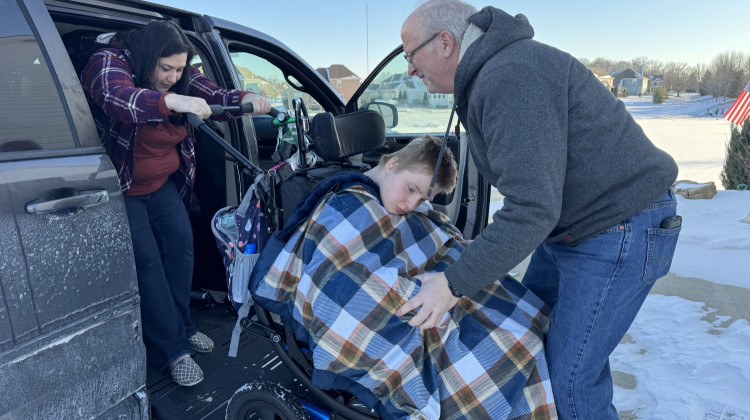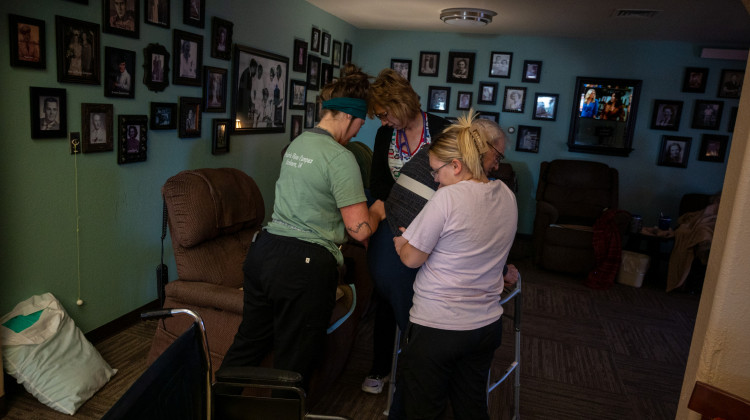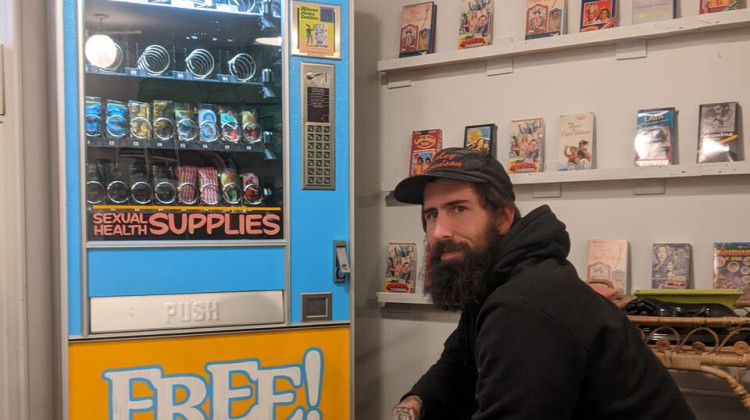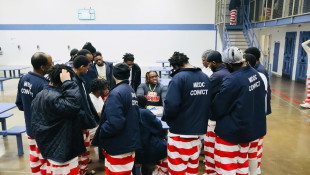When Joseph Hill turned 21, he went from being homeless to being homeless and uninsured.
Hill grew up in foster care. He entered the system when he was 3 months old. At 19, he aged out of foster care and faced an abrupt transition into adulthood.
At first he received health insurance under Medi-Cal, California's version of Medicaid. But those benefits disappeared when he turned 21.
Back then, Hill needed new prescription glasses so he could drive to work and see the board at school. Losing medical coverage meant spending money that he did not have.
"It felt like a low blow – it cost like $400," Hill, who lives in San Diego, says of paying out of pocket for his glasses. "If I had coverage, I could have put that $400 to groceries."
But now, because of a little-known provision in the Affordable Care Act, Hill and other former foster youths can get free health care under Medicaid until age 26, regardless of their income. In some states, coverage includes free vision and dental care. The new provision mirrors a similar Medicaid expansion granted to young adults on their parents' insurance.
About 55,000 former foster youth are expected to take advantage of the Medicaid expansion this year, and by 2017 that number is predicted to increase to as many as 74,000, according to the Centers for Medicare & Medicaid Services.
This coverage can be life-saving, because young adults who grew up in foster care are at higher risk of mental health issues, post-traumatic stress, and chronic medical conditions than their peers. And before the change in the law, in many states former foster youth would lose access to Medicaid services as early as age 18.
"These are kids who have not had an easy life," Tricia Brooks, senior research fellow at the Georgetown Center for Children and Families, in Washington D.C., tells Shots. "There's definitely a higher need for physical and mental health services among this population."
Brooks is an advocate for the expanded coverage, but she says the change does not come without its hiccups.
Although state governments must cover youth who age out of the foster care system in their own states, Brooks says that state governments are not required to extend coverage to former foster youth that aged out in a different state.
The change also comes with challenges. Finding and notifying eligible members of this notoriously hard to reach demographic is the biggest, says Fatima Morales of Children Now, a California-based children's health advocacy group. Her organization's new campaign, Coveredtil26, aims to inform California's estimated 27,000 former foster youth like Hill about their new health care eligibility and ease their transition into adulthood.
Hill, who is now 23 and covered under Medi-Cal, felt the provision's effects firsthand during a recent trip to the eyeglass store.
"I got a free pair and a backup in case they break," he says. "And I didn't have to pay a cent."
9(MDEwMDc1MzM3MDEzNDczOTA0MDc1MzViMQ001))
 DONATE
DONATE








 View More Programs
View More Programs



 Support WFYI. We can't do it without you.
Support WFYI. We can't do it without you.